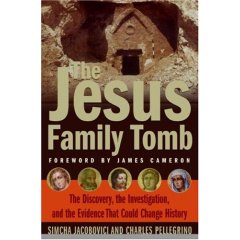
Here was an interesting little exercise from a recent CARM discussion I walked in on:
Poor jay, I will pray that God deliver you from darkness.
Jay: He did and I joined the catholic church, the one Jesus founded. "That thou art Peter and upon this rock I will build my church, and the gates of hell shall not prevail against it" I belong to that church, you do not.
Then I wander in….
Hi Jay, Just a quick question- Are you relying on the Bible alone to substantiate your belief in the papacy? Or do you have some other ultimate authority?
Jay: See, that is a loaded question, especially the word "ultimate". The NT came out of the church, the church did not come out of the NT. I use Scripture and Sacred Tradition. The confession of Christ as well as Feed My Sheep pointed to Peter as the leader from Jesus Himself. No, Paul was NOT the leader.
I'm just curious why you're quoting scripture to prove the papacy. That's a very protestant thing to do- using scripture to justify one's belief. So, if the NT came out of the church, how can you therefore use it to prove the authority of the church?
Jay: I was doing it on YOUR level, the protestant way, so you would understand it. I don't have to use the NT to prove the papacy since the existence of the papacy was in place BEFORE the NT was written. The NT is the history of the church. As you know you only had Oral Tradition before the written Word. The Word of God came orally first.
Ok, so what evidence proves that God established the papacy? Or do you just believe it by faith?
Jay: By FAITH and by WORD. Jesus did not use the word PAPACY. That is a later term as you know. Jesus's own words in the CONFESSION and the charge of FEEDING the SHEEP points to Peter as the leader of the church. It does not matter if anyone agreed to it or not. This gives me FAITH and Word, backed up by St. Iggy, a true witness. I don't like circular arguments as well as dissecting the word "Faith" by using relitivism as prots are known for.
Sounds to me like you're back to quoting the Bible again to prove your belief.
Jay: I mentioned St. Iggy if you did not get.
So, that's how you know God established the papacy? Wow. Amazing. And as far as I know, he wasn't even infallible.
Jay: The NT explained what Jesus already started. We all agree the Gospels contain the Word of God. St Iggy is just a witness to what had taken place. He doesn't have to be infallible. You might as well throw out your history books and everything else if you do not believe in eye witnesses.
I agree that the Bible is an ultimate authority. It is my ultimate authority, and I use it to establish truth. However, you being Roman Catholic say the church precedes the Bible, and you keep evading how it is you prove the authority of the Papacy. It can't be proved by the Bible if it comes before the Bible. In regards to “St Iggy”- This is a similar problem. It posits the testimony of someone who came afterward proves the authority of that which precedes it.
Jay: Are you telling me that the church DID not exist before the NT was written down? You can't be serious......The Word of God, preached Orally, proved Peter was the chosen leader. Then the Gospels were written. St Iggy and others backs all this up.
Peter states Scripture originated when men of God were moved by the Holy Spirit. Paul mentions that the same gospel he proclaimed was also proclaimed in the Old Testament (1 Cor 15:1-4), so the gospel, and at least some of the scriptures, precede a church founded in Rome. Thus, the church already had an ultimate authority by which to prove their beliefs. You though have attempted to prove your belief in the papacy by the word of God in oral form that stated Peter was the first pope and the papacy was established. Of course, one has no way of verifying that an oral message stating such ever happened. So again, I ask, on what basis do you believe in the papacy?
Jay: I am talking about the New Testament, not all scripture. Jesus chose Peter in the New Testament that was preached orally before it was written. The church was not founded in Rome, but headquartered there by Peter. Jesus's church was started on Pentecost, 33 ad, in Jerusalem.
This little exercise was intended to show you that you begin with the papacy as your ultimate authority. In fact, had you simply admitted this, I would have thanked you. You begin with the Roman papacy as true. The only thing we know about Jesus is from the testimony of the Scriptures. We don't have oral traditions about Jesus still floating around by which to appeal to.
Jay: Well the NT and the catholic church were created by the same person Jesus Christ.
And around and around we go…. first Jay said the New Testament came out of the church, now it was created by Jesus Christ. I can accept this answer as an unproven presuposition. In fact, I can even agree with it.


















